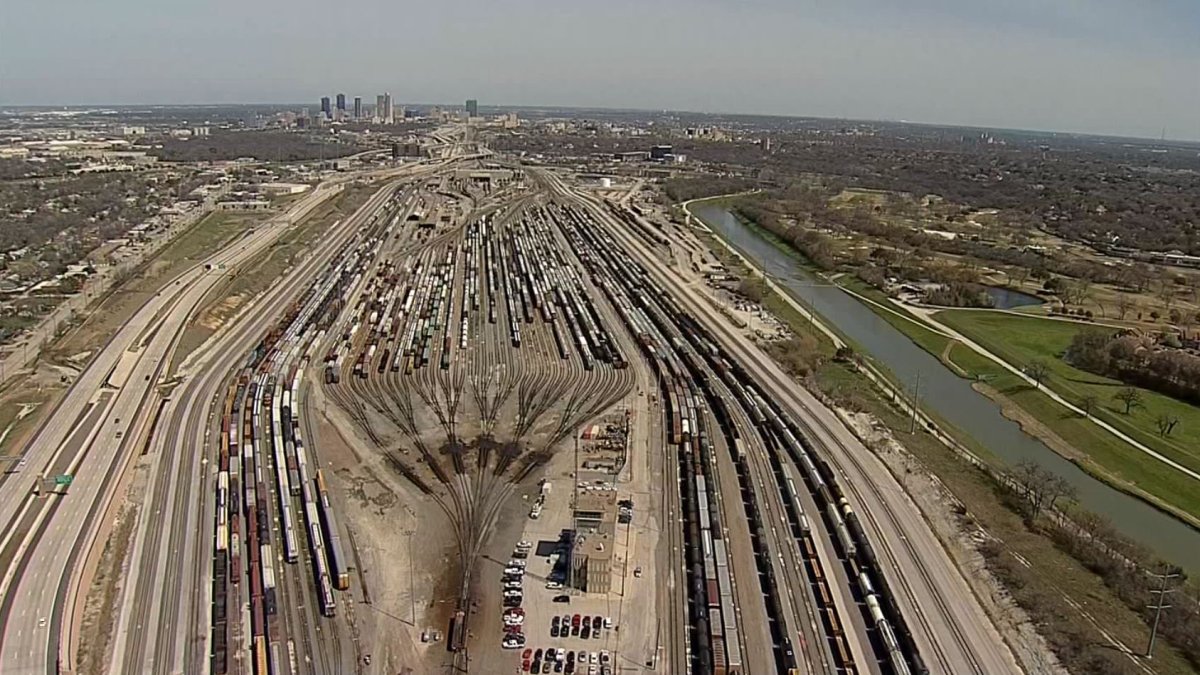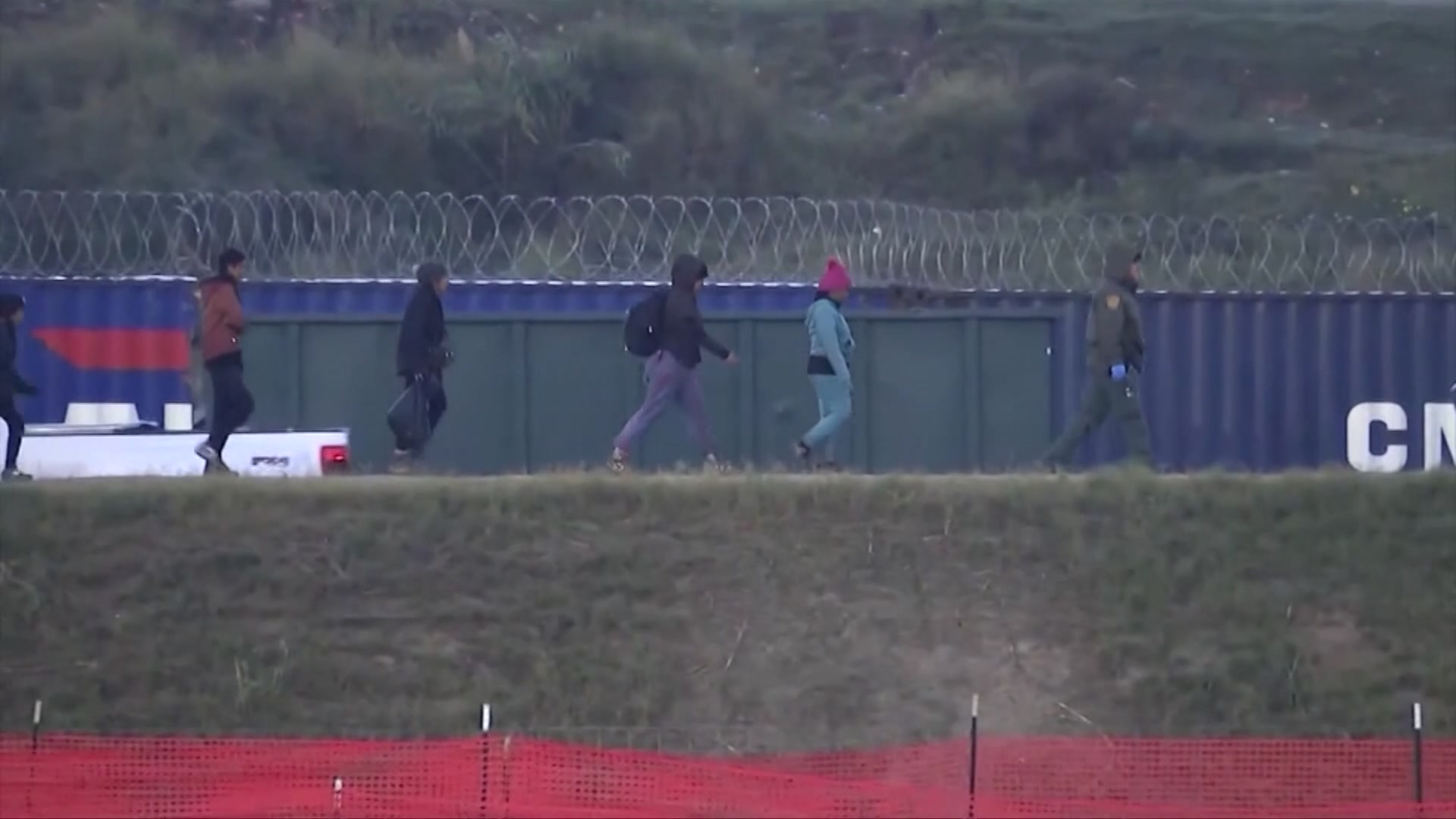
As many as four large Bakken crude oil shipments of a million gallons or more per week are going through Denton and Tarrant counties by train.
NBC 5 Investigates has obtained state records showing trains carrying at least a million gallons of Bakken crude oil sometimes travel through the four most heavily populated counties in North Texas.
That oil is coming from the Bakken region in the Dakotas and is shipped across the country. It’s a lighter oil that tends to be more flammable and has already been involved in fiery train derailments that caused evacuations and, in a derailment in Canada, deaths.
About two dozen firefighters from across North Texas recently spent a week at a training center at Tarrant County College learning what to do if hazardous materials train derailments occur, including those involving Bakken crude.
“It’s extremely volatile and burns very rapidly, very hot,” said Robert Lipscomb, Chief of the Lynchburg, Virginia Fire Department.
Last year, Lipscomb and his department came face-to-face with a massive fire when 15 cars on a CSX Transportation oil train derailed April 30, 2014. Three of the cars caught fire, but no injuries were reported.
“I would say the flames were, at any time, probably 100 to 150 feet in the air,” said Lipscomb.
It wasn’t the first fire involving a train carrying that product.
Local
The latest news from around North Texas.
In 2013 a train carrying Bakken crude in 72 tank cars on the Montreal, Maine & Atlantic Railway was parked overnight on a descending grade in Nantes, Quebec, Canada. At some point the brakes gave way on the unattended train and it began rolling downhill toward the town of Lac-Mégantic. As it entered the town at approximately 65 mph, the train derailed and 63 of the tank were damaged, starting a massive fire that killed 47 people, according to the Transportation Safety Board of Canada.
“I would just recommend folks plan for the worst, and if you see that particular product come through say, ‘OK, we are going to plan for the worst case scenario,’” said Lipscomb.
Records obtained in February from The Texas Department of Public Safety show BNSF Railway notified the DPS that Tarrant County could see from zero to as many as four large Bakken crude shipments per week.
The same notification went to Denton County.
According to the documents, Dallas and Collin counties could see between zero and two shipments per week. But a map BNSF provided the state is not detailed enough to show which cities are affected.
NBC 5 Investigates asked BNSF for clarification on the map, but they would not reveal specific routes citing security concerns. In fact, the railroad asked the state to keep those shipment notifications confidential; the Texas attorney general, however, decided they should be released to news organizations requesting them.
NBC 5 Investigates found the city of Fort Worth is among the cities that have been warned Bakken crude will travel through town.
The Fort Worth Fire Department’s Lt. Kyle Falkner confirmed to NBC 5 that his department has received notifications from the state. The department said its hazmat team is ready if anything were to happen.
“We feel like the Fort Worth Fire Department is very prepared particularly in our hazmat capability,” said Falkner.
Justin Fire Department Admin Chief Ken Cloud told NBC 5 Investigates he wasn’t aware trains carrying one million gallons of Bakken crude would be rolling through his town.
Denton County Emergency Management said it sent a notification to the attention of a different assistant chief in the Justin Fire Department. However, the department said notification would not make a big difference because in a large derailment they would call in Denton’s hazmat team for help.
“We're going to stop short to begin with. We're not going to go in until we can identify what's there,” said Cloud.
“It’s going to vary by city and state. Some are better prepared than others,” said Brigham McCown, who used to be the administrator of the U.S. Pipeline and Hazardous Materials Safety Administration which regulates hazardous materials shipments.
He said its essential communities have detailed information.
“When there’s an accident, that’s not the time to figure out who next door might be able to help you out,” said McCown.
BNSF insists everyone who needs the information, already knows.
“Certainly the city manager would know, the police, the first responders would know what’s coming through,” said Faust.
The railroad said accidents are rare and that they are doing everything possible to prevent derailments, including focusing on track maintenance.
Also, trains carrying Bakken crude now travel at reduced speeds in cities with more than 100,000 people to give people extra confidence.
“I think they should be concerned but they should feel secure in the fact that there are measures in place, there are practices in place and there are people trained in the event of something to protect them,” said Faust.
BNSF is helping train thousands of firefighters across the country. Recently they sponsored that the local training for many North Texas fire departments, including firefighters from Justin.
The railroads point out they don’t have a choice about carrying Bakken crude. Because they are considered “common carriers” under federal law they are required to move it.
Some states like Oregon have started posting Bakken crude shipment information online so the public can access it more easily. Right now, the Texas DPS said it has no plans to do that but said anyone can file a records request for the same notification information received by NBC 5.



